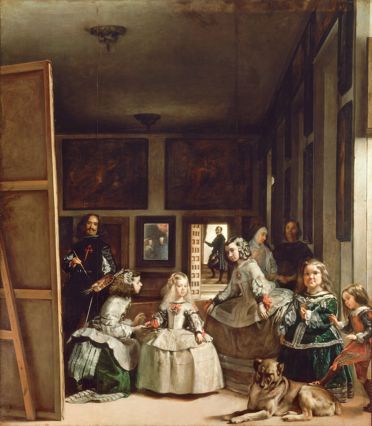Der Spott der anderen - Deutsche Oper Berlin
What moves me
The mockery of others
Enslaved, laughed at, excluded: where would opera be without the harlot, the orphan, or the dwarf in Zemlinsky’s THE DWARF? Outsiders are the true heroes, says dramaturg Sebastian Hanusa
Let’s hear it for the outsiders! Where would opera be were it not for all the whores and simple fools, the cursèd pirate captains and cast-out orphan girls, the artists and gnomes, the physically injured or warped? Were it not for all those labouring in bondage or discriminated against on the basis of their country of origin or sexual orientation or simply because they refuse to fit in?
The 19th and early 20th centuries threw up countless operas charting the fortunes and fate of outsiders. In the aftermath of the French Revolution there emerged a new, more nuanced awareness of social structures and mechanisms – and interest in the victims of social exclusion grew.
The outsiders were found to be the ideal source of material for opera: if a baddie’s outsider-ness is not adding a psychological dimension to his character then the fate of a banished or shunned woman is making a heroine out of her. Those outsiders whose natures are not conveniently fully good or fully evil tend to be the more enigmatic, more interesting operatic protagonists: Rigoletto, the Flying Dutchman, Carmen, Peter Grimes, and the like.
What makes an outsider? One determining factor is the relationship between the way we see ourselves and the way others see us: how do I perceive myself and how do others perceive me? How does their perception affect the way they relate to me and treat me? How does this opposition determine or form my own essence? How does it define my place in society? By those measuring sticks Alexander von Zemlinsky’s opera THE DWARF, which premiered in 1922, is the outsider work par excellence. Its title character is in many respects an outsider and the storyline itself partly autobiographical in terms of »outsider experience«.
The main character is a small-dimensioned man, a slave, who had been someone’s birthday gift to the Spanish Infanta. He is a source of amusement for the royal courtiers and of fascination due to his talents as a musician. In a moment of tenderness, the Infanta gives him a rose – which he takes as a token of her love.

Based on Oscar Wilde’s literary fairy tale »The Birthday of the Infanta«, the libretto appears to have tweaked Zemlinsky’s interest because it reminded him of slights that he himself had received. Zemlinsky, too, was relatively diminutive in stature, rather slender and not overly attractive in a superficially conventional sense. He fell head over heels for Alma Schindler, later to become Alma Mahler-Werfel, before she left him in favour of the much older Gustav Mahler, Director of the Royal Opera. And though Zemlinsky was not unsuccessful in his liaisons with women, it seems to have been this relationship that moved him to compose THE DWARF. Zemlinsky was born in 1871 into a Sephardic Jewish family in Vienna, the branch of Jews who had been ejected from Spain and established themselves in the Balkans, among other places. This meant that Zemlinsky was a member of a minority within a minority – and in the late 19th century of all periods.
Opera and reality differed in one respect, however: the dwarf has never seen himself in the mirror. He has no inkling that his growth is stunted and that he is ‘other’ in other people’s eyes. This makes the opera a work not only about one outsider in particular but about outsider-ness in general. The disparity between self-perception and other’s perception is the reason why he falls so hard. For him, people’s mockery is actually applause, their brief affection a shimmering declaration of love.
Right up to the final moment, that is, when the dwarf catches sight of himself in the mirror - an existential experience so shattering that he drops dead. It takes an event like this to confront him with his identity as an outsider.





